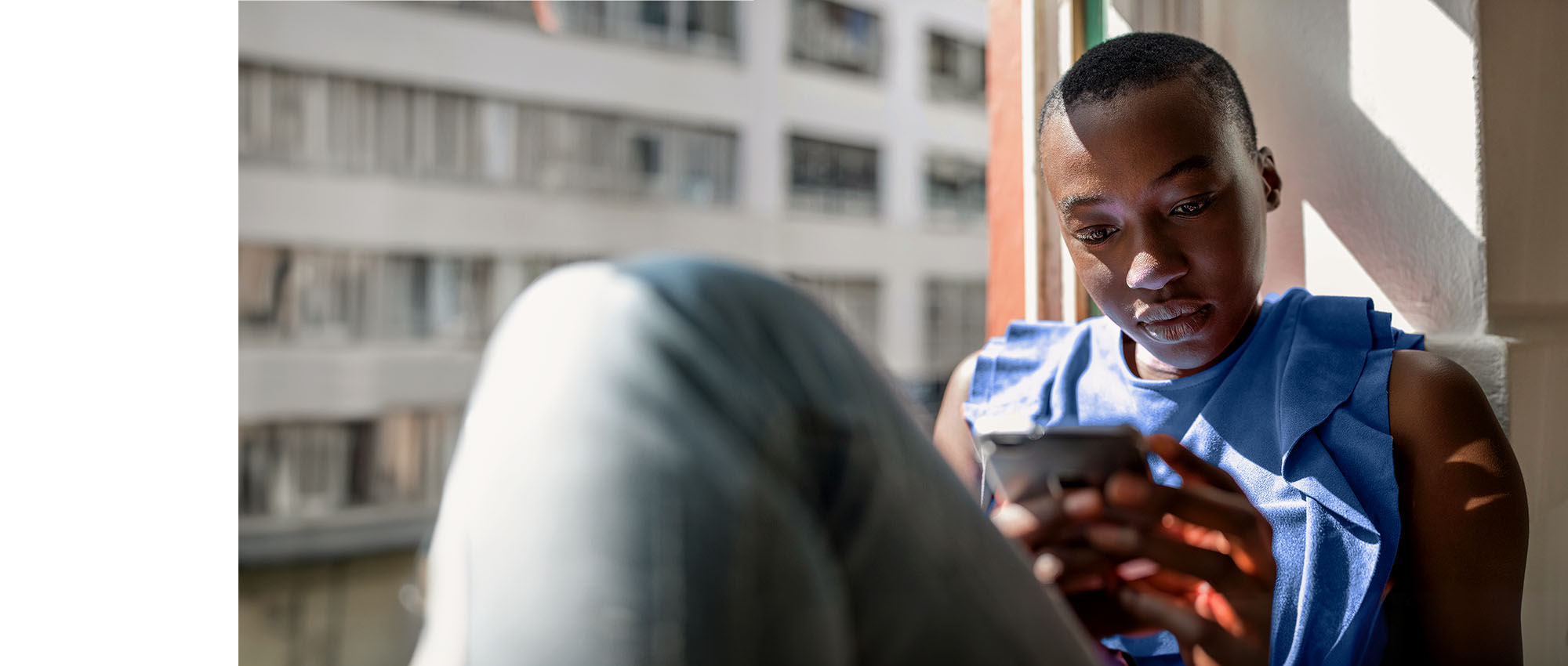

Introduction to 'Using social media safely'
Social media can be a great place for sharing updates, posting photos and talking with your friends and family. But you need to take care with what you share and who you share it with.
In this lesson, we’ll help you feel more confident about using social media safely. You can take our lessons ‘Introduction to online safety’ and ‘Ten tips for staying safe online’ first, if you haven’t seen these already.
What are you sharing online?
Before posting anything on social media, it’s always good to stop and think. Ask yourself: ‘what could someone do with this information?’. For instance, say you’re going on holiday for two weeks. You post a status on social media checking into an airport. Your post says “So excited to go away with the whole family for 2 weeks!”. Now you’ve told all your followers that no one’s at your home for two weeks, making it vulnerable to scammers/burglars. So, wait till you’re back home from your holiday to post any pictures and videos.
Who are you sharing personal details with?
Make sure your social media is as secure as it can be. That means adjusting your settings and keeping personal details as private as possible
Here are some examples:
- On Facebook, you can change your settings to friends only.
- On Instagram, you can change your profile to private instead of public.
- On X, you can set your profile to private instead of public.
Why you should restrict your social media account
Restricting your account means you say exactly who can see your personal details. If someone wants to see your posts, they’ll need to follow you or ask to add you as a friend. You can then accept or deny their request. Some sites let you set different rules for different posts and information.
For example, Facebook lets you decide who sees each post or piece of information. You might share your birthday with ‘friends only’. Or you can change your settings so no one else sees your email address – we recommend you do this.
On Instagram, you can set people as ‘close friends’. This means you have a public and private persona. Your public posts would be about things that don’t give too much away, like photos of food you’ve made. Only your close friends will be able to see your private posts – like holiday snaps.
Having these privacy settings on is only useful if you take care with who you accept as friends or followers. When you get a friend or follower request, ask yourself ‘why would this person want to see my information?’
Social media scams
Social media is a perfect platform for scammers. It gives them a place to target people with private messages and posts, and lets them sell items online. Remember, if a deal or product seems too good to be true, it probably is.
Here are some common scams to watch out for.
Social media purchase scams
This is when someone sells something on social media, but you either get something different to what you bought, or nothing at all.
How to avoid social media purchase scams:
Investment scams
This is when a scammer posts about a financial opportunity that you can invest in. They may promise you a large return on your money. Messages and offers like these are usually a scam, so it’s important to do your own research before you invest.
How investment scams work:
How to stay safe
It can be very hard to understand what’s fake and what’s real on social media. In general, it’s always good to be cautious about everything. If you’re not sure about something, always ask someone for help, or double check with a separate source.
The first thing to do is contact Report Fraud on 0300 123 2040 or online at https://www.reportfraud.police.uk/
If you're in Scotland, contact Police Scotland on 101.
Once you've done that, try to take steps to stop further damage. If the scam affects your bank account, contact your bank straight away. Think someone has one of your passwords? Change your password immediately.
If it sounds too good to be true, it probably is.
Always ask for a second opinion. Remember – stop, challenge, protect.
Lesson complete!
Well done on completing this lesson. You should now feel more prepared to stay safe on social media. We suggest you continue your learning with the next lesson: ‘Finding information online’. This lesson helps you use the internet to find out information. It also shows you how to find movies, music, photos and more. So, the next time you need to know something, you can feel ready to go online and find what you need.
Up next for you:
Next lesson: Finding information online
Back to: Get started online
Want to learn more?
There are many more lessons to help you get started online.
Bank of Scotland Academy is committed to providing information in a way that is accessible and useful for our users. This information, however, is not in any way intended to amount to authority or advice on which reliance should be placed. You should seek professional advice as appropriate and required. Any sites, products or services named in this module are just examples of what's available. Bank of Scotland does not endorse the services they provide. The information in this module was last updated on 8th November 2023.